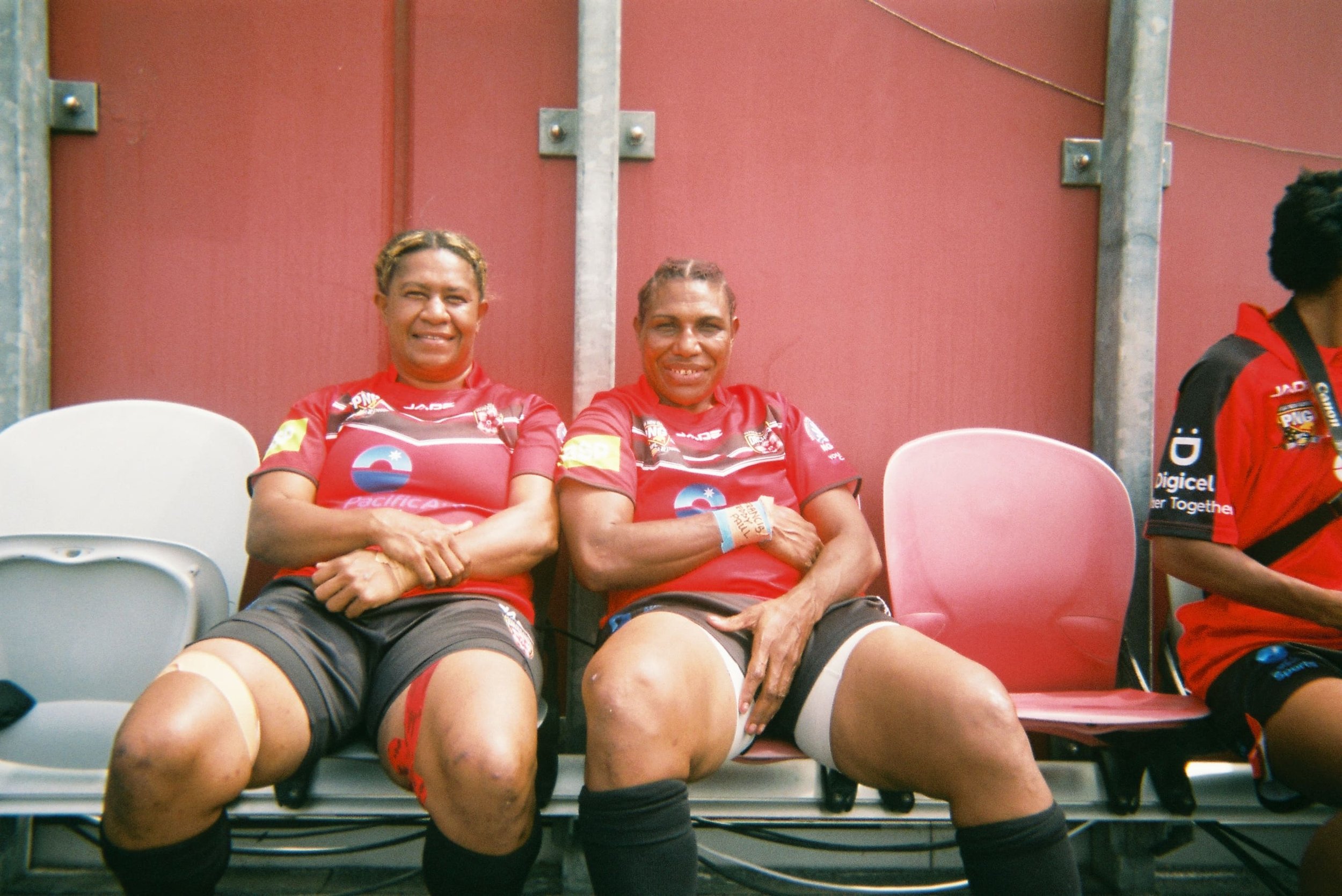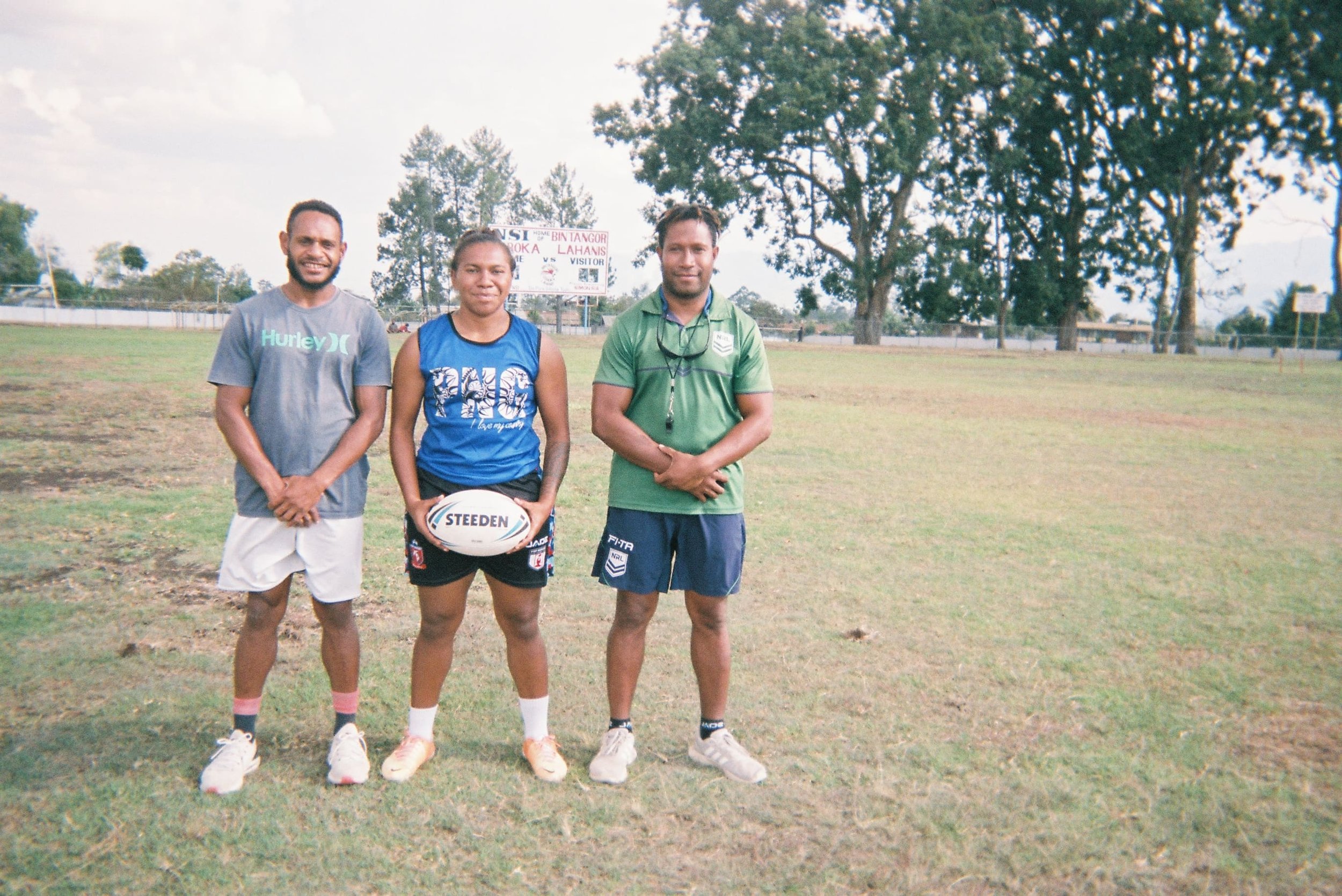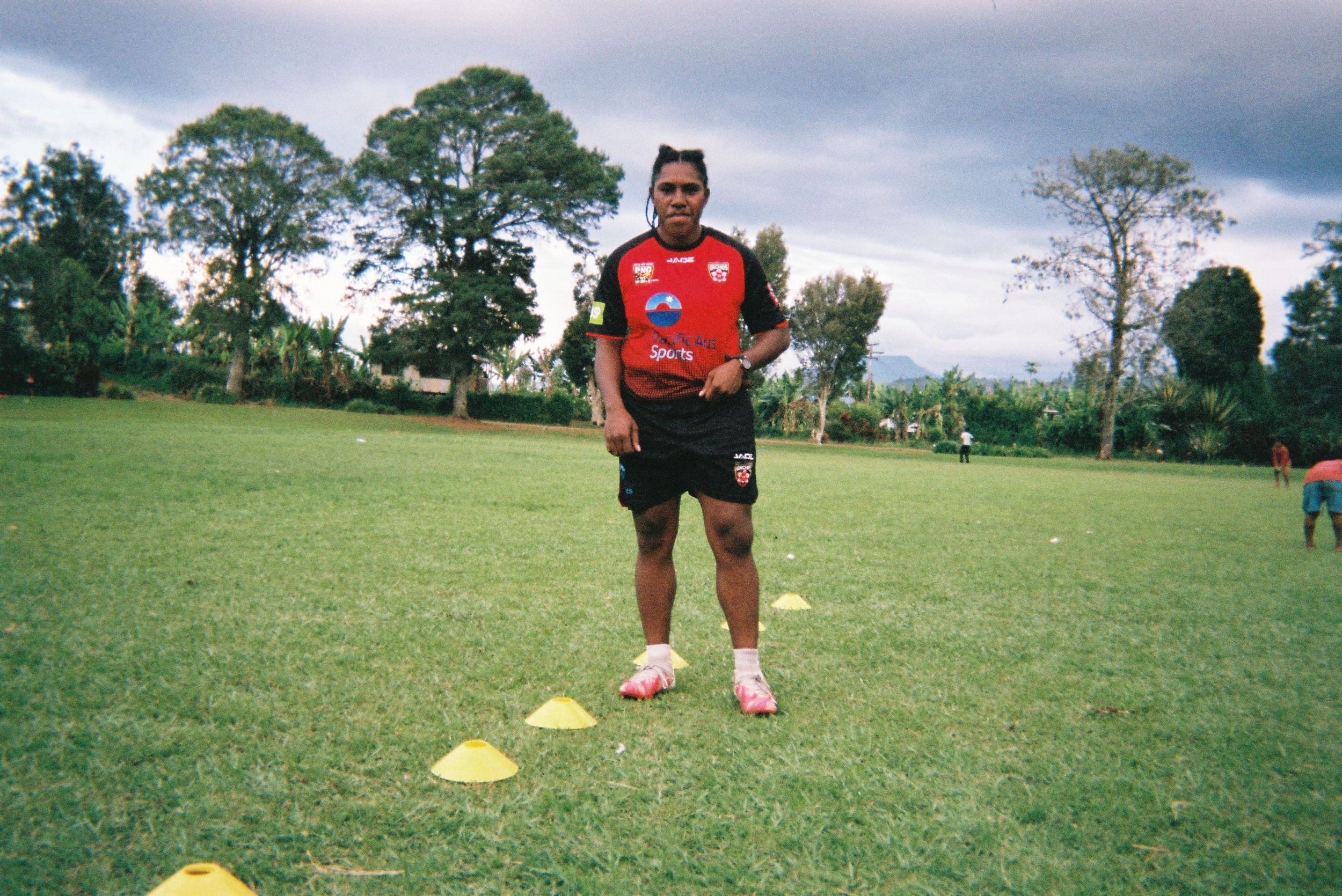Changing Mindsets In Mount Hagen
Belinda Gwasamun, Papua New Guinea
We teamed up with Rugby League World Cup 2021 for a special series. From Jamaica, Brazil and Lebanon, to England, New Zealand and the Cook Islands, our series documents the personal journeys of players to the Rugby League World Cup 2021 – across the Men’s, Women’s, and Wheelchair tournaments.
Belinda Gwasamun plays for the Papua New Guinea Orchids, and breaks down the difficulties of being both a mother and an international rugby league player.
Can you introduce yourself and tell us about your rugby journey?
My name is Belinda Gwasamun and I play for the Orchids (Papua New Guinea Women). I live in Mount Hagen in the Papua New Guinea highlands. I play for a local club in Mount Hagen, Kunai Sisters. There used to be 12 women’s teams in Mount Hagen but now there are only four teams because there are not enough sponsors supporting the teams. At the worst point recently, there were only two teams. These problems have been caused by COVID and the financial consequences, and recent election-related violence which has also affected rugby league, as there has been a lot of fighting where we live.
It is not easy being a mum and playing rugby. My husband is also a rugby league player, and he plays for the PNG Hunters, so he is away from home a lot. For the past two years the Hunters have been based in Australia due to COVID travel restrictions, and even when they are in PNG, they are based away from us in Port Moresby. I do not go out with my friends; I sacrifice that to train and be a better rugby league player.
I started playing rugby league in 2014 when I was still at school in eleventh grade. I played fullback in the first ever PNG women’s select team (before the Orchids was formed) when I was only 17. I had been playing touch footy but when I saw women playing rugby league, I wanted to join them. Now playing for my country and my family is the best feeling.
What did you try to show with the photos? Was there any wider meaning with any of the photos?
I took photos in Mount Hagen and Goroka. In Mount Hagen you can see my teammates from my women’s team. They do not have any kit to play in, so they are just playing in their own clothes. There is also another team who is playing in South Sydney Rabbitohs shirts, which is common in PNG (buying shirts from a shop and playing in them, rather than a team ordering their own kit, because of the cost). In fact, the Rabbitohs shirts are the boys’ kit. A lot of women’s teams have to share a kit with the men’s team or hire a kit from another club because they cannot afford their own.
The photos in Goroka were from when I went to train there for a week in August because we do not have a gym where I live, and because there was a lot of violence in Mount Hagen. It is meant to be a three-hour drive but because of the condition of the road it took over four hours.
I also showed the camp for our Orchids selection match in Port Moresby and behind the scenes from that match.
One photo shows us training with the local men’s team. This is important because before, men thought women were meant to stay in the kitchen and look after the kids. But slowly the men are supporting us and now they are encouraging us to train together and trying to help us. This started to change after RLWC 2017 (once the Orchids national team was formed). We have changed their mindset.
What is your favourite photo? Why?
The photo of people in Mount Hagen watching rugby league on a rustic field shows that even though we do not have a proper stadium, kit or boots, people have such heart for playing rugby league and that we improvise with what we have. You can see that the goalposts are made from bamboo and the ground is not a good pitch, but so many people are watching because they love the sport. In Mount Hagen it is different from Port Moresby. In Port Moresby they have everything. In the highlands we hardly have anything, but we still take part just because we love rugby league.
Are there any good stories connected with the people you photographed?
My Orchids teammate from the highlands, Gloria Kaupa, was in the Orchids squad for RLWC 2017 but she only played a few minutes of the last game against New Zealand. But she did not give up, she kept pushing and was very patient until 2019 when she became the vice-captain. All her hard work and patience paid off, and she captained us against Australia recently in the Prime Minister’s XIII match. She is a great example to all of us. I first met her when I was studying in Goroka in 2016.
What role does rugby league play in your community and country?
Rugby league plays a major role in my community because a lot of boys and girls are involved in criminal activities and drugs. However, when they get involved in rugby league it disciplines them, and they focus on rugby. It also changes the mindsets of people in a positive way.
What ambitions do you have for the future?
I want to be a role model to the younger ones coming up and to be a good representative of my country. After I finish playing, I would like to stay in rugby league as a coach and promote women’s rugby league back in my community.
What are the biggest changes happening at the moment in women's rugby league?
The women’s league is growing in PNG. Elsie Albert getting a contract in the NRLW (with St George Illawarra Dragons) changed the mindset of every girl that if they play better, they could follow in her footsteps. Everyone is pushing harder to be the next NRLW player. It is making people train every day and it is changing the mindsets of everyone who plays. They can see that they now have a chance too. If they perform their best, they could get selected to play in another country.
What do you expect to change after the RLWC for women's rugby league? What would you like to change?
The Rugby League World Cup will grow women’s rugby league. Having the Orchids on this big stage at the World Cup changes the mindset of every girl back in PNG that they could play at this level too. I would like to see more sponsors and support for all the women’s clubs in Mount Hagen so that we can return to the number of clubs we had before.
Do you have a message for the next generation of young female players?
Hard work and discipline beats talent. You can be a talented player but if you do not discipline yourself, you cannot achieve what you want to achieve. Everything comes through discipline and hard work.












